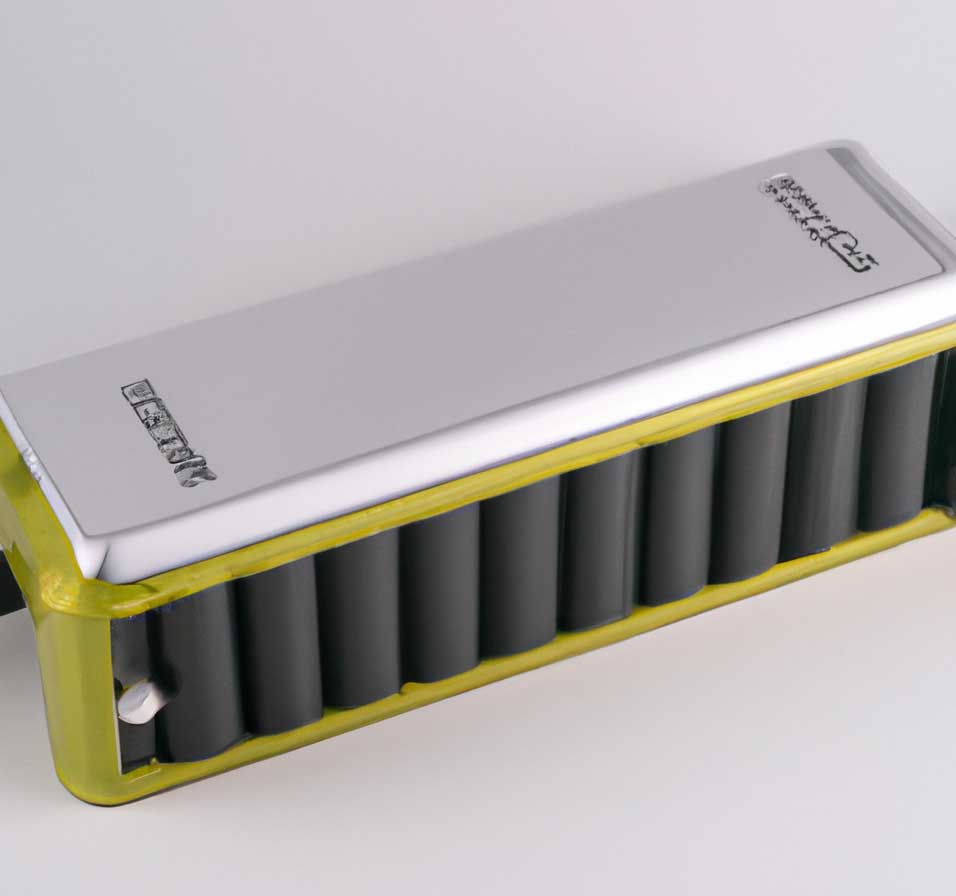Solar Panel Authority Canada
Exploring Common Battery Types for DIY Solar Installations in Canada
Greetings All!
When it comes to DIY solar installations in Canada, choosing the right battery is a crucial consideration. Batteries play a vital role in storing and delivering the energy generated by your solar panels, ensuring a reliable and sustainable power supply even when the sun isn't shining. In this blog post, we will explore some of the common battery types used in DIY solar installations in Canada, helping you make an informed decision for your renewable energy journey.
1. Lead-Acid Batteries:
Lead-acid batteries, like the one in most gas powered cars, have stood the test of time and remain a popular choice for DIY solar installations. They come in two main variants: flooded lead-acid batteries (FLA) and sealed lead-acid batteries (SLA). FLA batteries require regular maintenance, including checking fluid levels and ensuring proper ventilation, while SLA batteries are maintenance-free and provide a safer option. Lead-acid batteries are relatively affordable, making them an attractive choice for homeowners on a budget.
2. Lithium-Ion Batteries:

Lithium-ion batteries batteries have gained significant popularity in recent years, thanks to their high energy density, longer lifespan, and lightweight design. Although they tend to be more expensive than lead-acid batteries, they offer several advantages. Lithium-ion batteries are highly efficient, have a longer cycle life, and provide better performance. They are also scalable, allowing homeowners to expand their energy storage capacity as needed. Tesla Powerwall, LG Chem RESU, and Sonnen are well-known lithium-ion battery options for residential solar installations.
3. Nickel-Cadmium (Ni-Cd) Batteries:
While less common in residential DIY solar installations, nickel-cadmium batteries (Ni-Cd) batteries have unique characteristics that make them suitable for specific applications. Ni-Cd batteries offer a higher energy density than lead-acid batteries and are known for their durability and ability to withstand extreme temperatures. However, due to environmental concerns related to the use of cadmium, Ni-Cd batteries are less commonly used in residential settings.
4. Flow Batteries:
Flow batteries are primarily utilized in commercial and large-scale solar installations. However, they are starting to gain attention for residential use as well. Flow batteries store energy in a liquid electrolyte solution, offering advantages such as easy scalability and a longer lifespan. These batteries can be discharged completely without affecting their cycle life, making them an attractive option for homeowners looking for extended storage capabilities. It's worth noting that flow batteries are still relatively expensive and less widely available in the residential market.
Choosing the Right Battery:
When selecting a battery for your DIY solar installation, consider factors such as capacity, cycle life, depth of discharge, efficiency, and compatibility with your solar system's inverter. Assess your energy needs, budget, and long-term goals to determine the most suitable option. Even though you are doing it yourself, consulting with a solar professional can provide valuable insights and help you make an informed decision based on your specific requirements.
In Conclusion:
Selecting the right battery for your DIY solar installation is crucial for ensuring reliable energy storage and optimal performance. Lead-acid batteries offer affordability, while lithium-ion batteries provide higher efficiency and longer lifespans. Nickel-cadmium batteries have specific applications, and flow batteries offer scalability and extended storage capabilities. Consider your energy requirements, budget, and system compatibility to make an informed choice. By selecting the appropriate battery, you can maximize the benefits of your DIY solar installation and enjoy clean, sustainable energy for years to come.
For more information about buying batteries, please read our Solar Battery Buying Guide For DIY Projects.
Hope that clears things up.
Katie
- Posted On: June 19, 2023
Send us your feedback:
Recent Blog Entries...
- Net Metering In Ontario-A Guide To Efficient Home Energy
- Comparing Solar Installations Professional Vs DIY
- Why Solar Energy Shines Brighter For Homes Than Geothermal Energy
- The Economics Of DIY Solar Projects In Canada
- Choosing The Right Inverter For DIY Solar
- Installing Solar Panels A Complete DIY Guide


Comments & Replies
Tina Says:
This blog post "Exploring Common Battery Types for DIY Solar" provides a comprehensive overview of various battery options for DIY solar installations and I like the way it covers the functionality, pros and cons, and environmental impact of different battery types, helping readers make informed decisions.
Rico Says:
Your information is well-organized and concise, making it easy to understand for those exploring battery choices. It really helped me understand and compare battery options for my own DIY solar setup.
Sandy Says:
It is crucial to implement proper recycling programs and sustainable practices to mitigate the environmental impact associated with all of these batteries and ensure their responsible use in the transition to clean energy technologies.
Join the conversation using the form below...